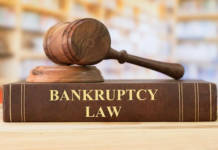Cannabis, whether it is in the form of oil, concentrates, or other derived products, is considered a soft drug that is low in addiction risk compared to stronger substances like heroin and cocaine. Since the turn of the century, it has been banned in most nations to grow, even though it was once a valuable crop to the nations of the commonwealth. Interested in growing your own weed? Visit Homegrown Cannabis Co and check out their great deals on feminized seeds.
The demand for decriminalizing small amounts of marijuana for personal use and the escalating problem of black market drugs have prompted governments to revisit the issue of legalizing marijuana…
Starting from scratch
With the rise of middle-class marijuana users in the 1960s and 1970s, there was a moderately greater acceptance of the view that cannabis should not be viewed as a narcotic. 11 states also decriminalized possession under the 1970 Drug Abuse Prevention Act. However, many states made changes to their drug laws and tightened penalties in the late 1980s. Since 1996, however, several states have enacted medical marijuana laws, and Colorado and Washington’s voters supported the legalization of marijuana in 2012.
The proponents of marijuana regulation have stated that marijuana is an intoxicant less controllable than alcohol, that the drug-using society does not need another substance to use, and that the United States should not attempt to minimize UN policies that prohibit marijuana’s use for purposes other than medicine.
The First Country Legalized Marijuana
Uruguay legalized marijuana-related activities in 2013, a milestone that weakened drug cartels by legalizing marijuana use, growing, and sale. Uruguay’s legalization, which was controversial in Uruguay, was also scrutinized by international authorities who found it to be inconsistent with international treaties.
Analyzing The Pros And Cons Of Legalizing Cannabis
The economic impact of legalizing cannabis as well as its reduction in crime has been assessed in numerous studies. It is also important to consider both the health risk and the impediment to the progress of the youth, so an objective evaluation can be made. Cannabis legalization increases government income and reduces government costs.
Generating Revenue
It has never taken advantage of the opportunity to legalize marijuana, but it should be given the chance. Although many people believe that legalizing marijuana would increase abuse and use, both the government and private individuals think otherwise. The legalization of marijuana will reduce the significant expenditures of money on drug enforcement, and it will improve the revenue of the country.
Cannabis Black Market
Smuggling cannabis through customs has gained attention due to the high-interest rates. The black market business people, who are indispensable contributors to the state revenue, evade customs tax as a result. Cannabis businesses, if legalized, should pay state taxes, bringing government profits in an unquestionable way. To give an example, in the Netherlands in 2007, two percent of the gross domestic product (GDP) was made up of marijuana or its associated products. Check out https://homegrowncannabisco.com/feminized-seeds for more.
Furthermore, legalizing marijuana can decrease public investment from the government, such as costs of prisons, public safety, and law enforcement. By reducing expenses and increasing income, sanitation, health, and education will benefit. In addition, legalizing marijuana will have a positive effect on decreasing drug-related crime. A lot of countries charge people with drug charges for growing, buying, and possessing weeds.
Policies Relating To Drugs
Drug policies differ from country to country, and marijuana is not legal in every state. However, most states believe that arbitrating them differently is feasible based on the scale and amount of the exercises. The legalization of marijuana’s use due to its lack of harmful effects on the community may encourage consumers to purchase marijuana from authorized stores rather than commit crimes if they obtain it illegally.
Through government supervision, social and individual safety can be ensured, and crime rates can be lowered accordingly. Nevertheless, legalizing marijuana appears to be an unfavorable and undesirable decision. A close link has been proven between the use of marijuana and the incidence of some diseases. There is evidence that marijuana use can result in respiratory and mental illnesses and is potentially toxic to the immune and cognitive systems.
In conclusion
There are certainly two sides to legalizing marijuana. The government will receive an economic return, and the crime rate will be reduced as well as the drug industry will be standardized. Marijuana, on the other hand, may pose a hazard to people’s health and is detrimental to adolescents. As a result, one should be aware that it will never solve social difficulties or ensure that the human being is unharmed. There is a degree of dependability in the outcome depending on the new legal regime and the other insurgent factors.









